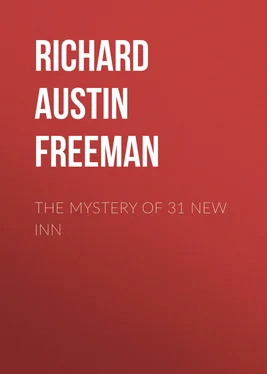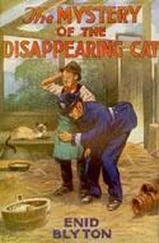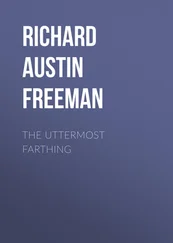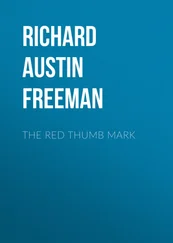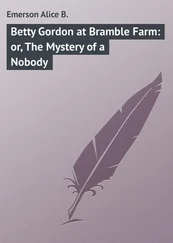Richard Austin Freeman - The Mystery of 31 New Inn
Здесь есть возможность читать онлайн «Richard Austin Freeman - The Mystery of 31 New Inn» — ознакомительный отрывок электронной книги совершенно бесплатно, а после прочтения отрывка купить полную версию. В некоторых случаях можно слушать аудио, скачать через торрент в формате fb2 и присутствует краткое содержание. Жанр: foreign_prose, Классический детектив, foreign_detective, foreign_antique, на английском языке. Описание произведения, (предисловие) а так же отзывы посетителей доступны на портале библиотеки ЛибКат.
- Название:The Mystery of 31 New Inn
- Автор:
- Жанр:
- Год:неизвестен
- ISBN:нет данных
- Рейтинг книги:4 / 5. Голосов: 1
-
Избранное:Добавить в избранное
- Отзывы:
-
Ваша оценка:
- 80
- 1
- 2
- 3
- 4
- 5
The Mystery of 31 New Inn: краткое содержание, описание и аннотация
Предлагаем к чтению аннотацию, описание, краткое содержание или предисловие (зависит от того, что написал сам автор книги «The Mystery of 31 New Inn»). Если вы не нашли необходимую информацию о книге — напишите в комментариях, мы постараемся отыскать её.
The Mystery of 31 New Inn — читать онлайн ознакомительный отрывок
Ниже представлен текст книги, разбитый по страницам. Система сохранения места последней прочитанной страницы, позволяет с удобством читать онлайн бесплатно книгу «The Mystery of 31 New Inn», без необходимости каждый раз заново искать на чём Вы остановились. Поставьте закладку, и сможете в любой момент перейти на страницу, на которой закончили чтение.
Интервал:
Закладка:
"How do you find him now?" Mr. Weiss asked anxiously.
"I am glad to say that there is a distinct improvement," I replied. "But we must persevere. He is by no means out of the wood yet."
I examined the coffee, which looked black and strong and had a very reassuring smell, and, pouring out half a cupful, approached the bed.
"Now, Mr. Graves," I shouted, "we want you to drink some of this."
The flaccid eyelids lifted for an instant but there was no other response. I gently opened the unresisting mouth and ladled in a couple of spoonfuls of coffee, which were immediately swallowed; whereupon I repeated the proceeding and continued at short intervals until the cup was empty. The effect of the new remedy soon became apparent. He began to mumble and mutter obscurely in response to the questions that I bellowed at him, and once or twice he opened his eyes and looked dreamily into my face. Then I sat him up and made him drink some coffee from the cup, and, all the time, kept up a running fire of questions, which made up in volume of sound for what they lacked of relevancy.
Of these proceedings Mr. Weiss and his housekeeper were highly interested spectators, and the former, contrary to his usual practice, came quite close up to the bed, to get a better view.
"It is really a most remarkable thing," he said, "but it almost looks as if you were right, after all. He is certainly much better. But tell me, would this treatment produce a similar improvement if the symptoms were due to disease?"
"No," I answered, "it certainly would not."
"Then that seems to settle it. But it is a most mysterious affair. Can you suggest any way in which he can have concealed a store of the drug?"
I stood up and looked him straight in the face; it was the first chance I had had of inspecting him by any but the feeblest light, and I looked at him very attentively. Now, it is a curious fact—though one that most persons must have observed—that there sometimes occurs a considerable interval between the reception of a visual impression and its complete transfer to the consciousness. A thing may be seen, as it were, unconsciously, and the impression consigned, apparently, to instant oblivion; and yet the picture may be subsequently revived by memory with such completeness that its details can be studied as though the object were still actually visible.
Something of this kind must have happened to me now. Preoccupied as I was, by the condition of the patient, the professional habit of rapid and close observation caused me to direct a searching glance at the man before me. It was only a brief glance—for Mr. Weiss, perhaps embarrassed by my keen regard of him, almost immediately withdrew into the shadow—and my attention seemed principally to be occupied by the odd contrast between the pallor of his face and the redness of his nose and by the peculiar stiff, bristly character of his eyebrows. But there was another fact, and a very curious one, that was observed by me subconsciously and instantly forgotten, to be revived later when I reflected on the events of the night. It was this:
As Mr. Weiss stood, with his head slightly turned, I was able to look through one glass of his spectacles at the wall beyond. On the wall was a framed print; and the edge of the frame, seen through the spectacle-glass, appeared quite unaltered and free from distortion, magnification or reduction, as if seen through plain window-glass; and yet the reflections of the candle-flame in the spectacles showed the flame upside down, proving conclusively that the glasses were concave on one surface at least. The strange phenomenon was visible only for a moment or two, and as it passed out of my sight it passed also out of my mind.
"No," I said, replying to the last question; "I can think of no way in which he could have effectually hidden a store of morphine. Judging by the symptoms, he has taken a large dose, and, if he has been in the habit of consuming large quantities, his stock would be pretty bulky. I can offer no suggestion whatever."
"I suppose you consider him quite out of danger now?"
"Oh, not at all. I think we can pull him round if we persevere, but he must not be allowed to sink back into a state of coma. We must keep him on the move until the effects of the drug have really passed off. If you will put him into his dressing-gown we will walk him up and down the room for a while."
"But is that safe?" Mr. Weiss asked anxiously.
"Quite safe," I answered. "I will watch his pulse carefully. The danger is in the possibility, or rather certainty, of a relapse if he is not kept moving."
With obvious unwillingness and disapproval, Mr. Weiss produced a dressing-gown and together we invested the patient in it. Then we dragged him, very limp, but not entirely unresisting, out of bed and stood him on his feet. He opened his eyes and blinked owlishly first at one and then at the other of us, and mumbled a few unintelligible words of protest; regardless of which, we thrust his feet into slippers and endeavoured to make him walk. At first he seemed unable to stand, and we had to support him by his arms as we urged him forward; but presently his trailing legs began to make definite walking movements, and, after one or two turns up and down the room, he was not only able partly to support his weight, but showed evidence of reviving consciousness in more energetic protests.
At this point Mr. Weiss astonished me by transferring the arm that he held to the housekeeper.
"If you will excuse me, doctor," said he, "I will go now and attend to some rather important business that I have had to leave unfinished. Mrs. Schallibaum will be able to give you all the assistance that you require, and will order the carriage when you think it safe to leave the patient. In case I should not see you again I will say 'good night.' I hope you won't think me very unceremonious."
He shook hands with me and went out of the room, leaving me, as I have said, profoundly astonished that he should consider any business of more moment than the condition of his friend, whose life, even now, was but hanging by a thread. However, it was really no concern of mine. I could do without him, and the resuscitation of this unfortunate half-dead man gave me occupation enough to engross my whole attention.
The melancholy progress up and down the room re-commenced, and with it the mumbled protests from the patient. As we walked, and especially as we turned, I caught frequent glimpses of the housekeeper's face. But it was nearly always in profile. She appeared to avoid looking me in the face, though she did so once or twice; and on each of these occasions her eyes were directed at me in a normal manner without any sign of a squint. Nevertheless, I had the impression that when her face was turned away from me she squinted. The "swivel eye"—the left—was towards me as she held the patient's right arm, and it was almost continuously turned in my direction, whereas I felt convinced that she was really looking straight before her, though, of course, her right eye was invisible to me. It struck me, even at the time, as an odd affair, but I was too much concerned about my charge to give it much consideration.
Meanwhile the patient continued to revive apace. And the more he revived, the more energetically did he protest against this wearisome perambulation. But he was evidently a polite gentleman, for, muddled as his faculties were, he managed to clothe his objections in courteous and even gracious forms of speech singularly out of agreement with the character that Mr. Weiss had given him.
"I thangyou," he mumbled thickly. "Ver' good take s'much trouble. Think I will lie down now." He looked wistfully at the bed, but I wheeled him about and marched him once more down the room. He submitted unresistingly, but as we again approached the bed he reopened the matter.
Читать дальшеИнтервал:
Закладка:
Похожие книги на «The Mystery of 31 New Inn»
Представляем Вашему вниманию похожие книги на «The Mystery of 31 New Inn» списком для выбора. Мы отобрали схожую по названию и смыслу литературу в надежде предоставить читателям больше вариантов отыскать новые, интересные, ещё непрочитанные произведения.
Обсуждение, отзывы о книге «The Mystery of 31 New Inn» и просто собственные мнения читателей. Оставьте ваши комментарии, напишите, что Вы думаете о произведении, его смысле или главных героях. Укажите что конкретно понравилось, а что нет, и почему Вы так считаете.
